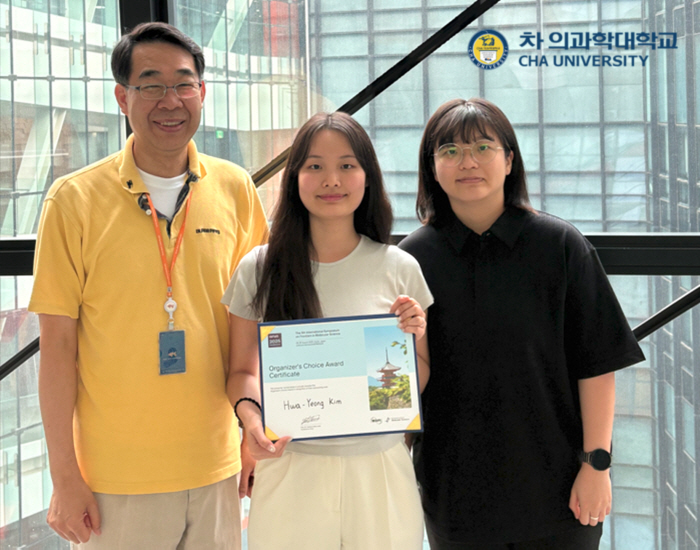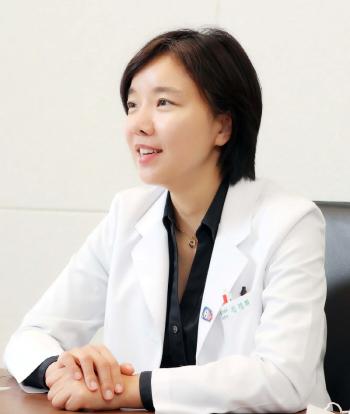Professor Baek Kwang-hyun's team from Cha Medical Science University wins the Outstanding Poster Award at the International Molecular Science Symposium
Sep 18, 2025
A team led by Professor Baek Kwang-hyun of the Medical Life Sciences Department at Cha Medical University (President Seo Young-geo) (Master of Science Kim Hwa-young and Dr. Choi Hae-seul) received the Excellence Poster Award at the 5th International Symposium on Molecular Science held in Japan from August 26 to 29.
Professor Baek Kwang-hyun's team identified a gene that can overcome the resistance of paclitaxel (name 'Taxol', a drug widely used in lung cancer chemotherapy.
The research team noted the problem that lung cancer cells become resistant to drugs after a certain period of time when paclitaxel was administered, and found a gene group called 'deubiquitinizing enzyme' in lung cancer cells using gene amplification screening techniques. Since then, it has been confirmed that the enzyme can control the proliferation of cancer cells and lower resistance to drugs. This means that using deubiquitinizing enzymes can reduce the resistance of anticancer drugs without drug changes.
Professor Baek Kwang-hyun said, "This study is significant in that it presents new possibilities to overcome resistance to anticancer drugs, expanding patients' treatment options and diversifying strategies. We hope that it will contribute to the development of anticancer drugs and the improvement of cancer treatment levels in the future." The study was published in the SCI-class scientific journal Cell Biology International under the title of Deubiquitinating Enzymes Associated with Paclitaxel Response in Lung Cancer Cells.
Professor Baek Kwang-hyun's team identified a gene that can overcome the resistance of paclitaxel (name 'Taxol', a drug widely used in lung cancer chemotherapy.
The research team noted the problem that lung cancer cells become resistant to drugs after a certain period of time when paclitaxel was administered, and found a gene group called 'deubiquitinizing enzyme' in lung cancer cells using gene amplification screening techniques. Since then, it has been confirmed that the enzyme can control the proliferation of cancer cells and lower resistance to drugs. This means that using deubiquitinizing enzymes can reduce the resistance of anticancer drugs without drug changes.
Professor Baek Kwang-hyun said, "This study is significant in that it presents new possibilities to overcome resistance to anticancer drugs, expanding patients' treatment options and diversifying strategies. We hope that it will contribute to the development of anticancer drugs and the improvement of cancer treatment levels in the future." The study was published in the SCI-class scientific journal Cell Biology International under the title of Deubiquitinating Enzymes Associated with Paclitaxel Response in Lung Cancer Cells.
|
This article was translated by Naver AI translator.














